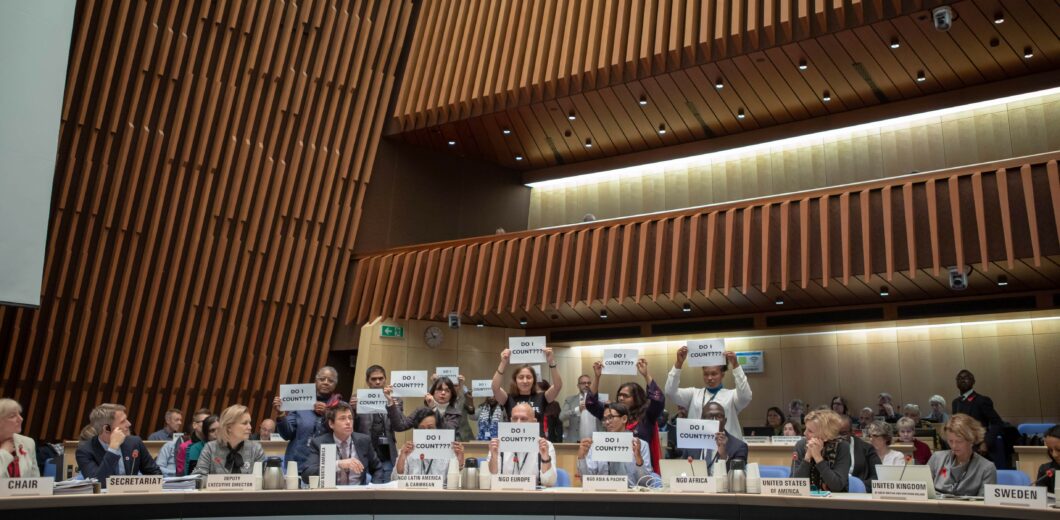Introduction
The UNAIDS 43rd Programme Coordinating Board (PCB) met in Geneva, Switzerland, on 11-13 December 2018, chaired by the Honorable Anne Wechsberg, Director, Policy Division, Department for International Development, United Kingdom. This 43rd PCB meeting, with its very full-to-overflowing agenda, heightened tensions vis-à-vis the release of a report prepared by the Independent Expert Panel; the announcement by the Executive Director of his upcoming departure, and, the many reports and updates requiring actions from the Board.
The agenda items led to lengthy, into the night (and early morning) drafting room deliberations. Overall, the meeting reached a consensus on every major agenda item and provided updates on issues from previous meetings, including the global HIV prevention agenda, the AIDS response and the challenges of sustainability; funding for community-led responses; integration of TB and HIV, access to medicines and intellectual property barriers; migration and HIV; approval of incoming officers and NGO representatives; and, a detailed report back from the Independent Expert Panel on issues of unethical workplace behavior including bullying, abuse of power and sexual harassment at the UNAIDS Secretariat. Within a complex context and contentious agenda items, the one-day Thematic Day, designed to address mental health and quality of life issues for people living with HIV and key populations, was shortened to a two-hour debate.
Following the Executive Director’s report, the NGO Delegation presented its report addressing the HIV prevention and treatment-related trends and challenges faced by people on the move as they seek health services, protection, and safety. We called on Member States, Cosponsors, and stakeholders to respect human rights and ensure the health of people living with and affected by HIV experiencing migration in all of its forms.
The Independent Expert Panel presented its report and discussed the recommended actions. This was followed by responses and recommendations from the management and the staff association. The IEP report concluded with the need to implement immediate changes at UNAIDS, both on the existing mechanisms and process to address the issues, as well as in the UNAIDS leadership. As expected, this particular agenda item elicited strong and varied reactions from Member States. During the discussion of the reports, the NGO Delegation maintained our position that UNAIDS must now do things very differently, at headquarters and in the field, and that a renewed and strong leadership is required, especially when it comes to addressing unethical workplace behaviors, including sexual harassment, bullying, and abuse of power in UNAIDS.
Throughout the preparations leading to the 43rd PCB meeting, the NGO Delegation followed the issues raised and organized regional and global calls with civil society to solicit feedback and recommendations for the way forward. The Delegation’s representatives at the PCB Bureau actively engaged in the critical discussions, including pushing for the pre-PCB release of the IEP report.
This meeting was particularly challenging for the NGO Delegation when a Member State raised issues on the NGO Delegation’s recruitment and selection process, stalling the decision point on approval of PCB officers and incoming NGO Delegates that was normally approved without questions. As in past meetings, the NGO Delegation was very busy with many side meetings with Member States, Cosponsors and civil society observers to gain an understanding of outstanding issues and to push for key recommendations and actions for the PCB and beyond.
